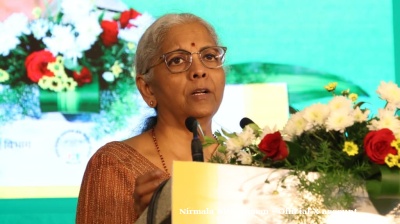Protests broke out in Serbia after the constitutional court overturned a government decision from 2022 that revoked Rio Tinto’s permit for a $2.4bn lithium mine, ruling the annulment unconstitutional and unlawful.
The decision came as the government prepares to grant Rio Tinto new approval to develop Europe’s largest lithium mine, a decision that revives a project shelved two years ago amid massive environmental protests.
The court declared that the government decree which terminated the spatial plan for Rio Tinto’s Jadar lithium mine and processing plant in Loznica was not in accordance with the constitution and the law. The decision, issued on July 11, allows Rio Tinto to proceed with its contentious project if it receives government approval.
Rio Tinto has welcomed the court's ruling, expressing optimism about advancing the Jadar lithium project, which is expected to be a significant source of lithium carbonate—an essential compound for batteries used in mobile phones and electric vehicles.
Serbia’s finance minister, Sinisa Mali, claims that lithium could be Serbia’s oil, contributing up to 16% of GDP and creating as many as 20,000 jobs. “It is the raw material of the future, just like oil was,” he said.
Opposition figure Dragan Djilas hit back at the comparison to oil. “Countries that have oil, extract it mostly in deserts or, like the Norwegians, in the sea, dozens of kilometres from the coast. And states are mostly owners of that wealth, not some Rio Tinto.”
Most Serbs agree with Djilas, and the court’s decision to overturn the ban on Rio Tinto’s project has sparked another bout of protests. On July 11, over a thousand protestors gathered outside the court and blocked a major street in central Belgrade despite extreme heat, voicing their dissatisfaction with the court's ruling.
Savo Manojlovic from Kreni-promeni, a movement instrumental in organising the 2021 and 2022 protests, criticised the court's timing and coordination with the authorities, which have recently indicated renewed support for the project.
Serbia’s President Aleksandar Vucic tried to deny any coordination or political interference with the court, claiming that he was “not interested in the decision”. “Their job is to assess the constitutionality of certain acts, not to go into the merits of the matter,” he said.
Earlier this year, opponents of the project submitted a petition with over 38,000 signatures, seeking a nationwide ban on lithium and boron mining. Despite this, the National Assembly of Serbia did not address the petition and the government has indicated its intention to go ahead with the project.
Kreni-promeni, which participated in local elections for the first time this year and gained seats in municipal parliaments, continues to advocate against the Jadar project. Actress and activist Svetlana Ceca Bojkovic also voiced her dissatisfaction, stating that while the court's decision was expected, the fight against the project must continue.
The Constitutional Court said that its ruling does not reinstate the spatial plan from 2020, leaving the decision on the project's future to the Serbian government in accordance with constitutional and legal guidelines.
If the government moves ahead with the project, as is highly anticipated, it risks further protests and the return of political instability and mass protests which swept the country in 2021.
News

India’s finance minister to miss upcoming IMF and World Bank meetings
India’s Finance Minister Nirmala Sitharaman will not attend this week’s annual meetings of the International Monetary Fund and World Bank in Washington, as trade negotiations between New Delhi and Washington remain unresolved.

Young Ukrainians asylum seekers fleeing the war for Germany surges
The number of young Ukrainian fleeing the war and seeking asylum in Germany has surged, following Ukraine’s decision to partially lift its travel ban for men aged 18 to 22, according to figures from the German Interior Ministry.

US may double support for Argentina to $40bn conditional on policy reforms
Washington buys Argentine pesos and mulls creating a new private sector-led $20bn debt facility, which would bring total support to $40bn with the existing swap line, Treasury Secretary Bessent said.

Malaysia plans social media ban for children under 13, following Singapore's lead
Under Kuala Lumpur’s proposal, all social media platforms will be required to implement mandatory identity verification systems to prevent underage users from creating accounts.




